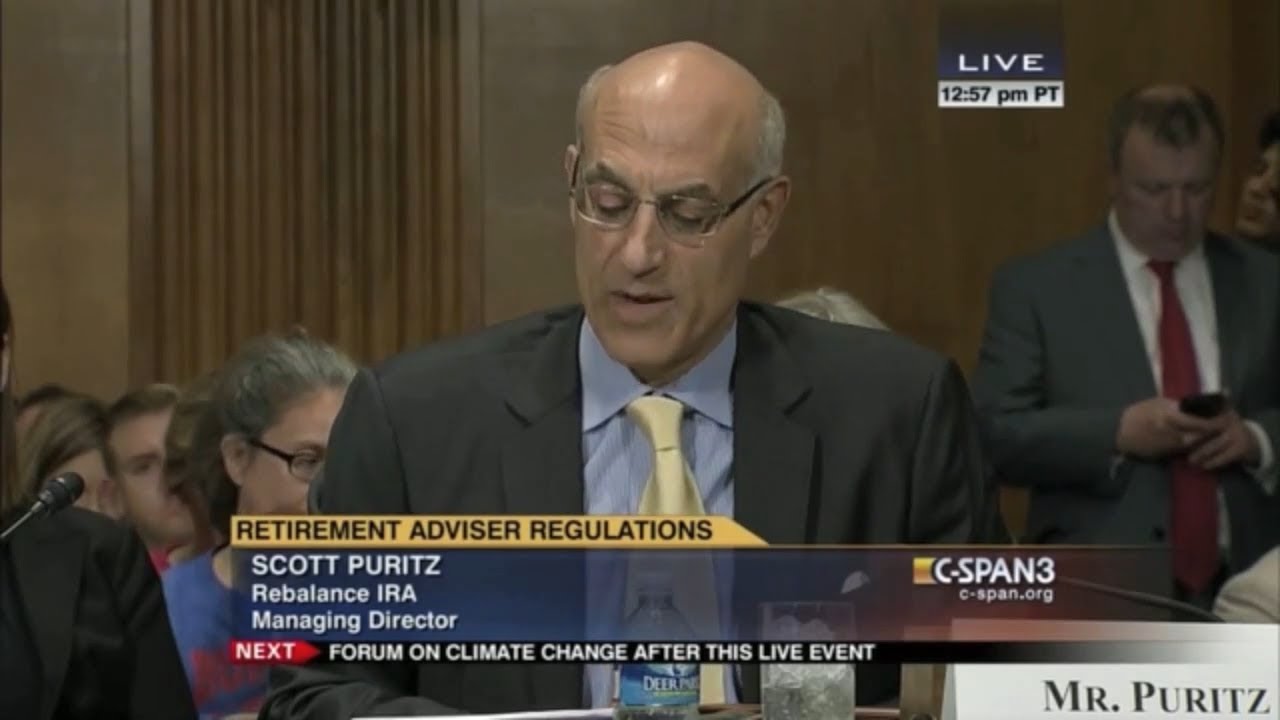
I talk to dozens of people each week about their investments. After a while, you begin to notice a peculiar similarity among many of them. They’ve had the same retirement advisor for years, yet they strongly distrust that person.
It can be hard for them to discuss it, as if they suffer from a financial version of Stockholm syndrome — the psychological phenomenon where hostages express sympathy toward their captors and even defend their actions.
They know they pay too much in fees. They know high costs hurt their chances of retiring on time. But they find it hard to break longstanding, sometimes inherited relationships.
We call them “brokerage refugees” and, like real-life refugees, they’re battered, tired and ultimately unsure of how to improve their lot. My colleague Scott Puritz, Managing Director and co-founder of my firm, Rebalance, testified this week at a U.S. Senate subcommittee hearing discussing a Department of Labor proposal that would make retirement investing safer for millions of Americans.
He joined Department of Labor Secretary Thomas Perez, who also testified, in explaining to the assembled senators how the Department’s proposal would benefit retirement savers. In brief, the Department of Labor wants anyone calling themselves a retirement advisor — such as stock brokers, insurance agents and investment managers — to act in their clients’ best interests.
It’s that simple, yet the industry is fighting the proposed rule tooth and nail. Imagine proposing a law that says the opposite — that retirement advisors do not have to put clients first.
How far do you think that would get? Yet taking no action on the Department of Labor proposal amounts to endorsing that status quo.
Many people mistakenly believe that a fiduciary standard already is common practice, perhaps even the law. Nearly half of Americans believe investment advisors put them first and nearly 60 percent believe that retirement advisors going by the titles “financial advisor” or “financial consultant” do so as well.
Unfortunately, it’s just not true. When we meet a brokerage refugee in person, their frustration and anger is real. They know they’ve been duped and they know it has been going on for decades in some cases. Trust is shattered.
In Scott’s Senate testimony, he related the true story of a client of ours, a woman in California with three kids who had inherited an advisor from her family. She believed that she was paying about 1% in fees. She gave the stock broker her family’s retirement funds to manage.
At her request, Rebalance analyzed her actual fees and unearthed a shocking — and shockingly common — reality. In addition to his 1% advisory fee, the broker had filled her account with expensive actively managed mutual funds. One had a front-end load of 5%!
Added up, her actual annual cost was 2.3% in fees, a burden which threatened to decimate her retirement plan. “She had no idea. Her broker never disclosed the fees or conflicts to which her accounts were subject,” Scott told the Senate subcommittee.
Don’t be a brokerage refugee
She was furious, a normal response and pretty typical of many of the brokerage refugees we meet. Just by shifting her assets into a low-cost diversified retirement portfolio, Rebalance managed to cut her costs by nearly 70% while keeping personal, hands-on retirement advice.
And that’s the really important part of Scott’s testimony. The industry is loudly proclaiming to any and all who will listen that the net effect of the coming Department of Labor ruling, should it be approved, is that everyday retirement investors will no longer have access to much-needed retirement advice.
As you might have guessed, when it comes to Washington the opposite is actually true. The business of Wall Street is not about giving personalized, careful advice. It’s about gathering assets as quickly as possible, slapping on stiff fees and hoping that nobody complains.
“The lack of a consistent best-interest advice is at the heart of the debate that we are having today,” Scott told the Senate subcommittee. “We have seen it firsthand, and we are troubled that others in the advisory industry are legally allowed to act in this manner, sometimes putting their own interest, or their firm’s, ahead of their clients.”
Putting clients first is what people intuitively believe is right. It’s time to put those words into action and ensure our retirements are not eaten alive by a retirement industry happy to keep us all in the dark.





